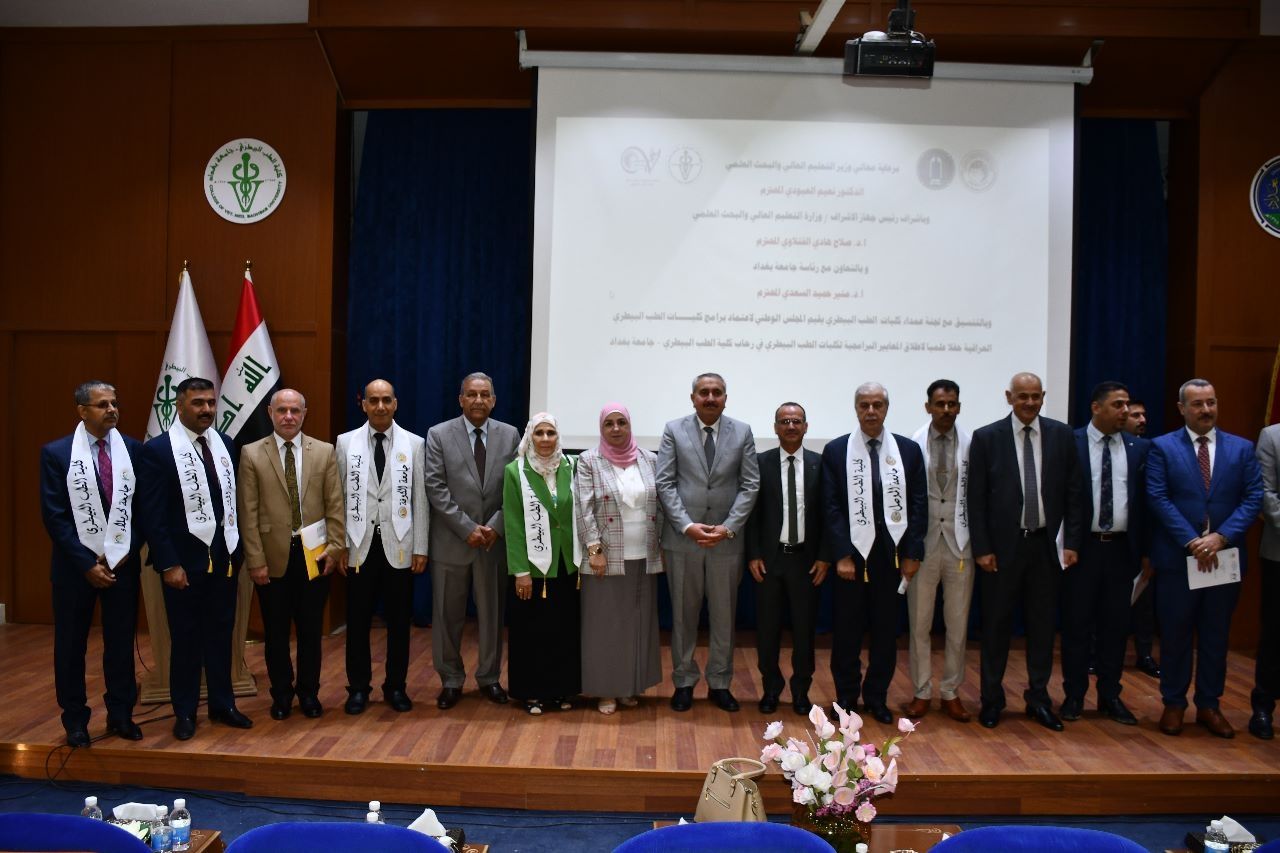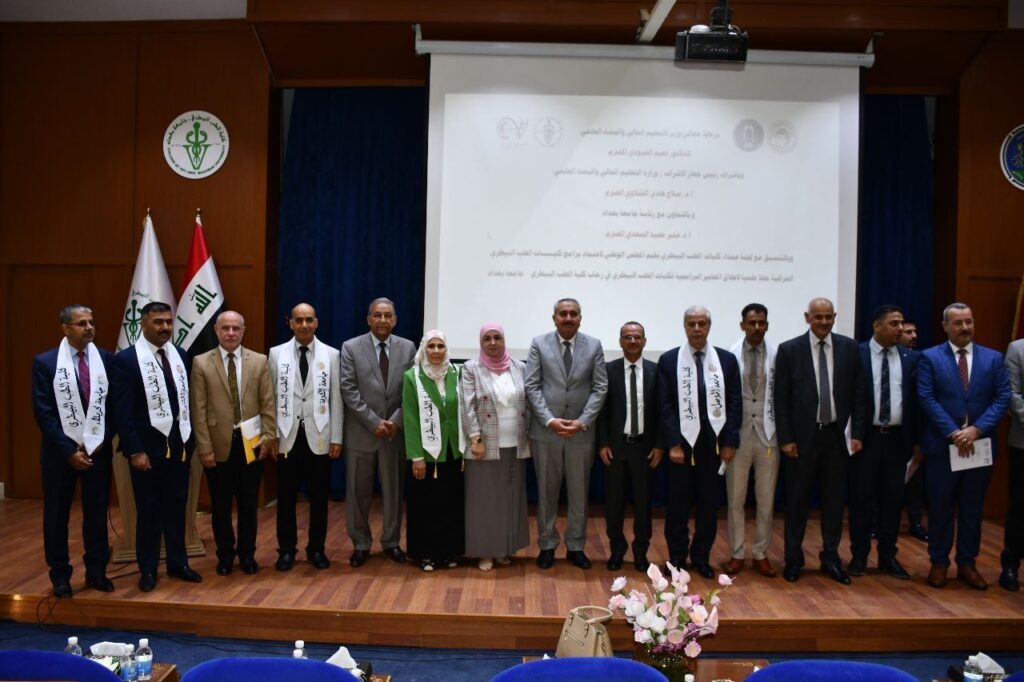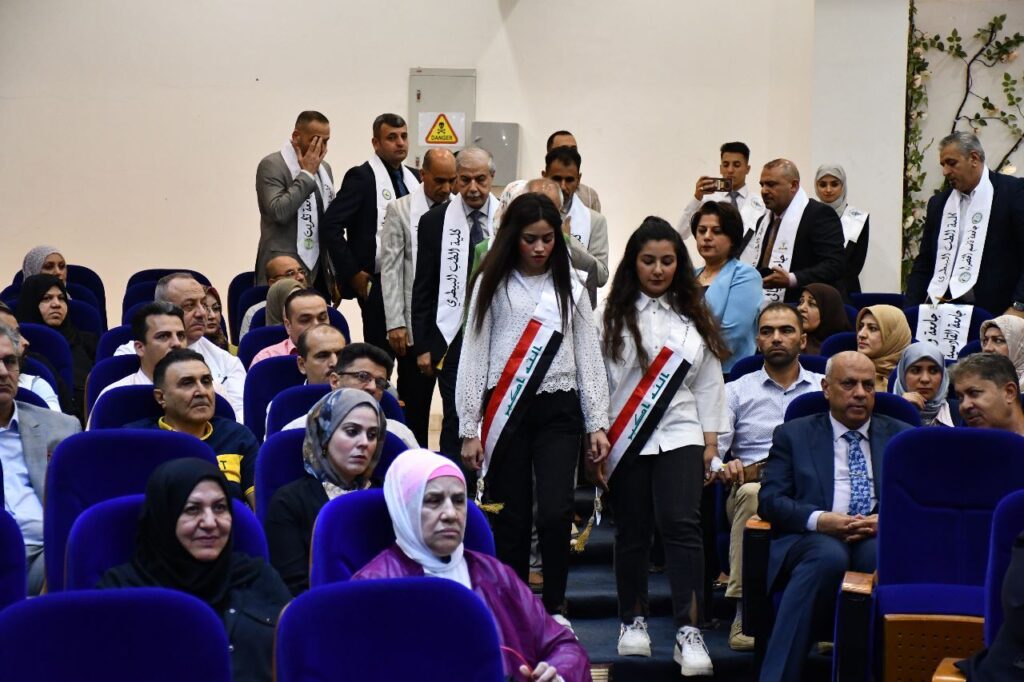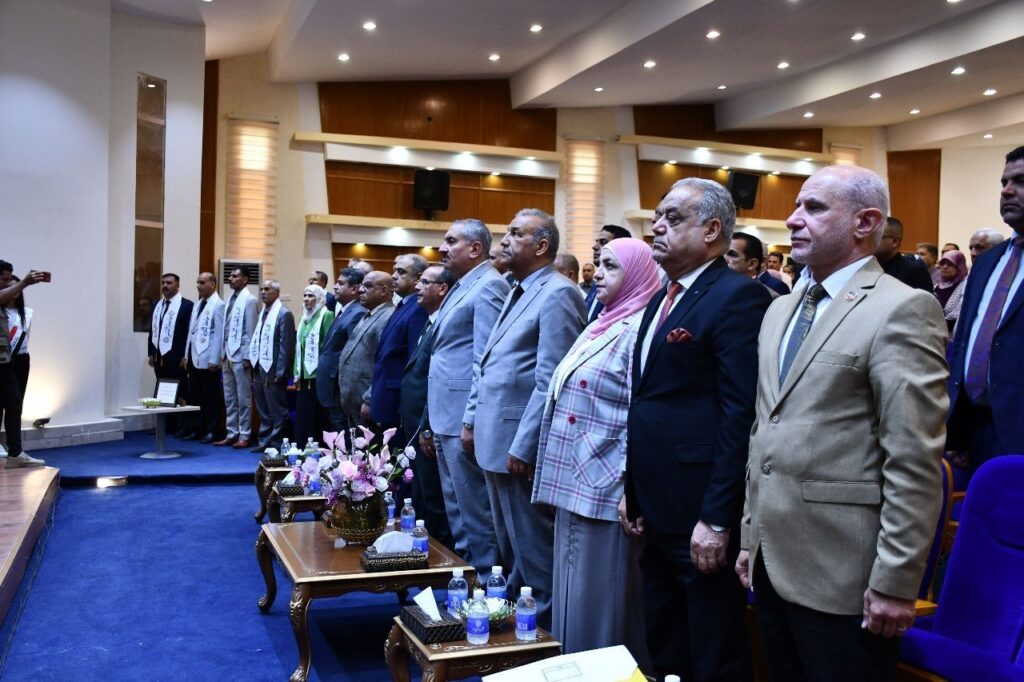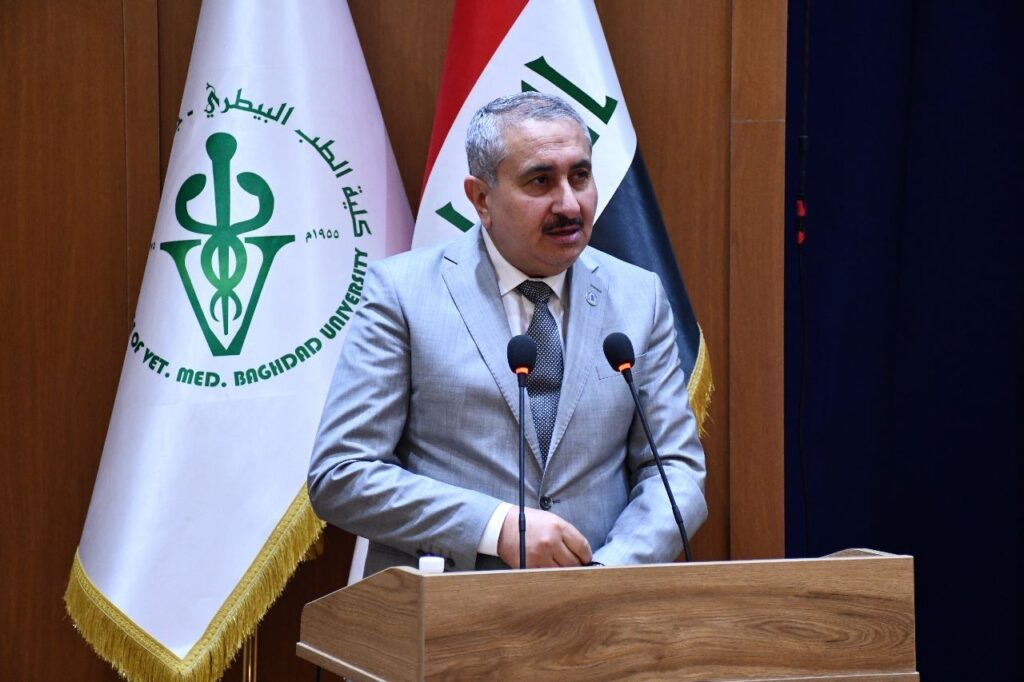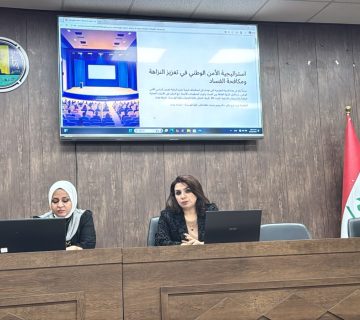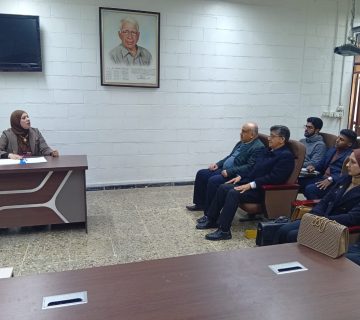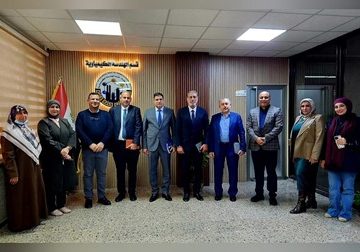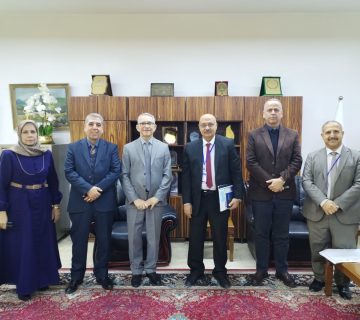The launching ceremony for the standards of the National Accreditation Council for Iraqi Veterinary Colleges took place at the University of Baghdad. During the event, the President of the University emphasized the significant importance of accrediting Iraqi Veterinary Colleges for various reasons:
1-Accreditation guarantees that veterinary colleges in Iraq meet specific standards of quality and excellence in education. It ensures that the curriculum, teaching methods, faculty qualifications, and facilities provided by the colleges meet the required benchmarks.
2-Accreditation assures employers and the public that graduates from accredited veterinary colleges are competent professionals, possessing the necessary knowledge, skills, and ethics for effective veterinary practice.
3-Accreditation boosts international recognition for Iraqi veterinary colleges, improving opportunities for graduates in further studies, research collaborations, and employment abroad. It enables mobility and global qualification recognition.
4-Accreditation protects consumers by ensuring that veterinary colleges meet independent evaluation and necessary standards, instilling confidence in the quality of services provided by graduates.
5-Accreditation is vital for veterinary graduates to obtain professional licensure, as many regulatory bodies require graduation from an accredited college. It ensures eligibility for licensure and legal practice of veterinary medicine.
6-The accreditation process encourages ongoing improvement in educational programs and services offered by veterinary colleges. It provides a framework for self-assessment, feedback, and external evaluation, leading to continuous enhancements in the quality of education.
7-Accreditation promotes research and innovation in veterinary colleges, increasing their chances of receiving funding, collaborations, and partnerships. This contributes to the advancement of veterinary science and healthcare.
8-Accreditation promotes collaboration and networking among veterinary colleges, both domestically and internationally. It facilitates the exchange of best practices, resource sharing, and the development of joint initiatives to address common challenges in veterinary education and practice.
The accreditation of veterinary colleges significantly contributes to multiple SDGs. It supports Goal 3 (Good Health and Well-being) by ensuring graduates can address animal and zoonotic diseases. Goal 4 (Quality Education) is promoted through high-quality education and competent professionals. Goal 9 (Industry, Innovation, and Infrastructure) is advanced through research and innovation. Goal 17 (Partnerships for the Goals) is exemplified through collaborative efforts. This aligns with the broader sustainable development agenda, emphasizing quality education, research, and partnerships for a sustainable veterinary field.

